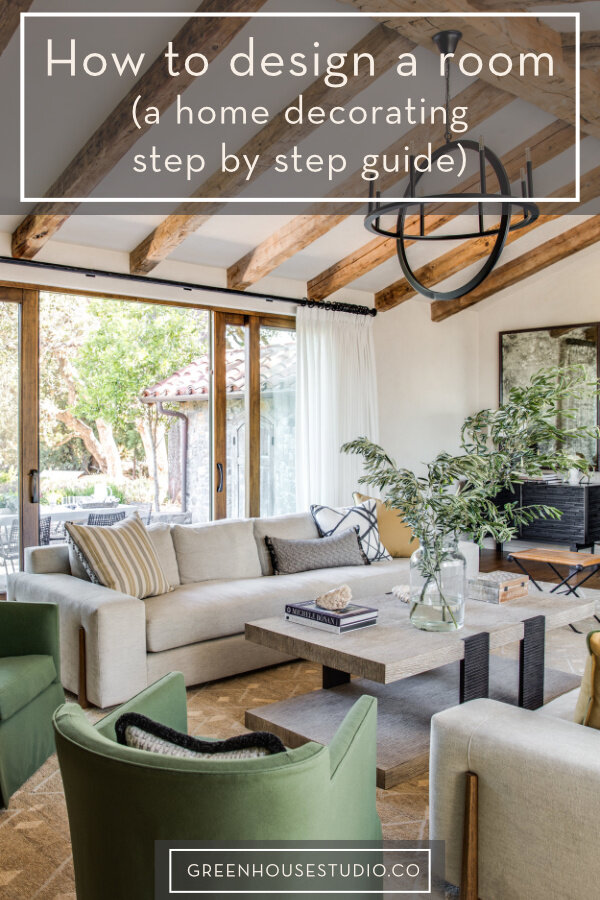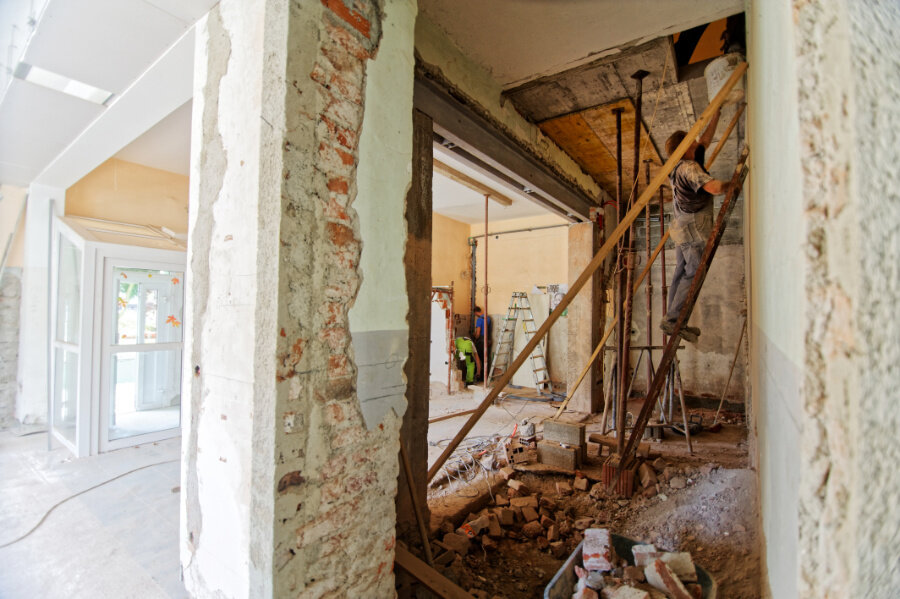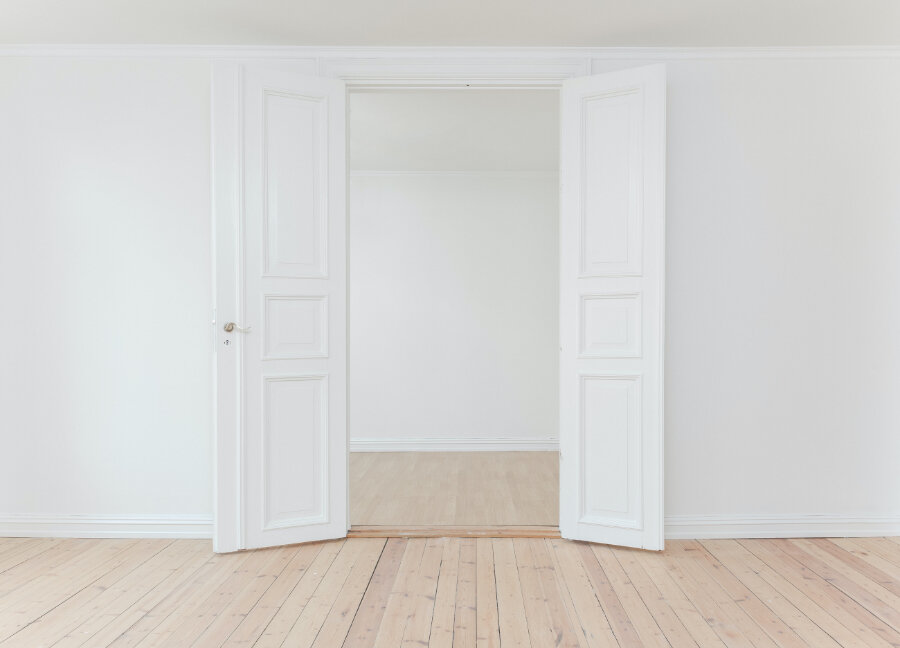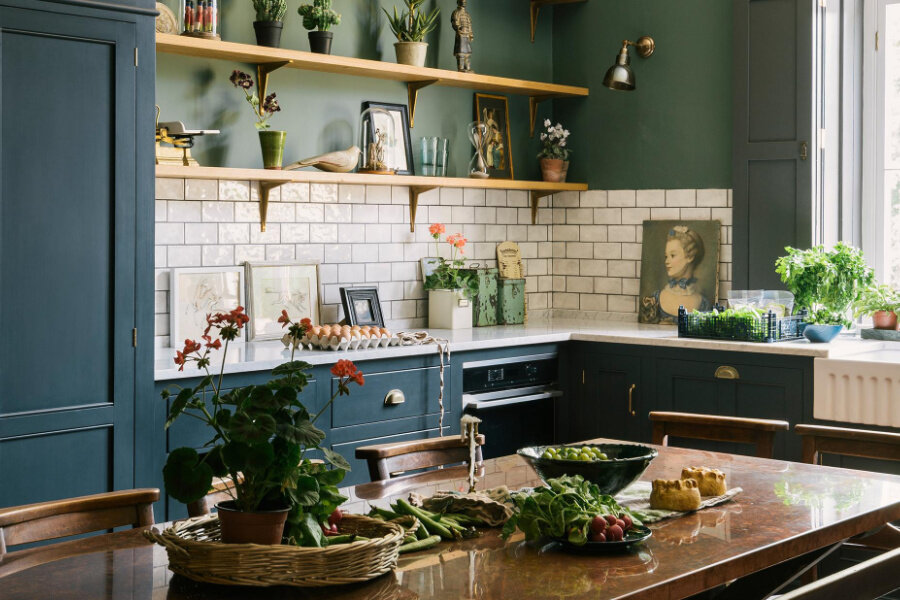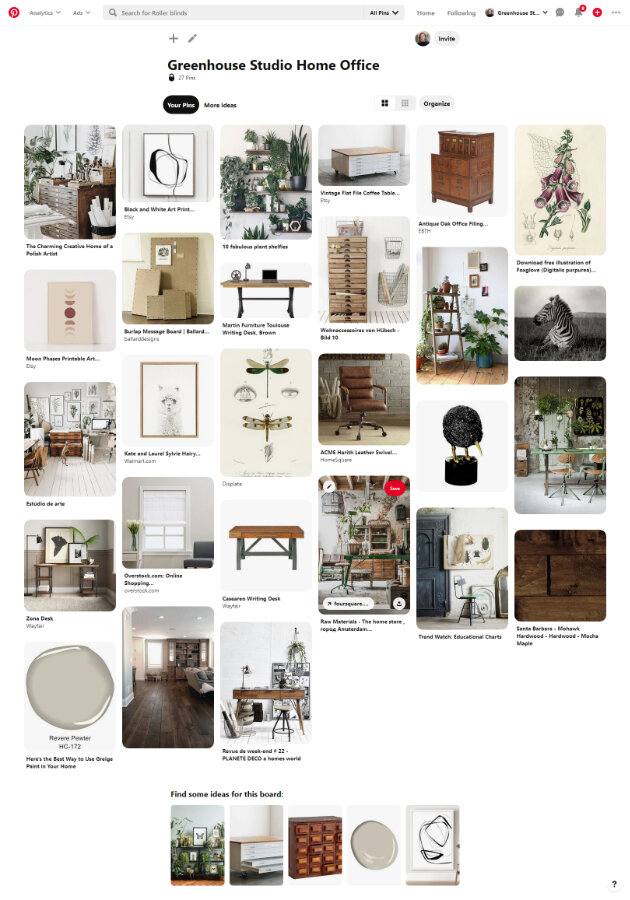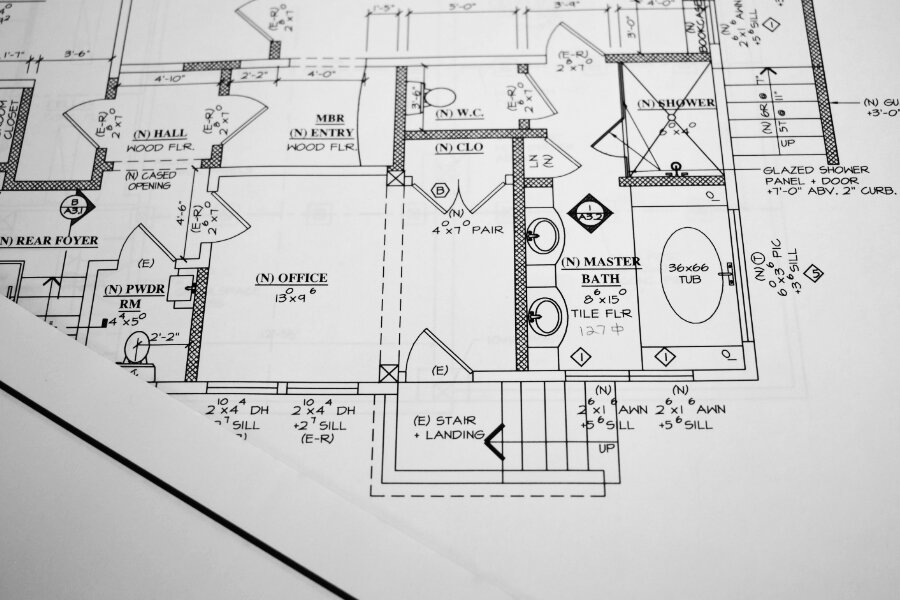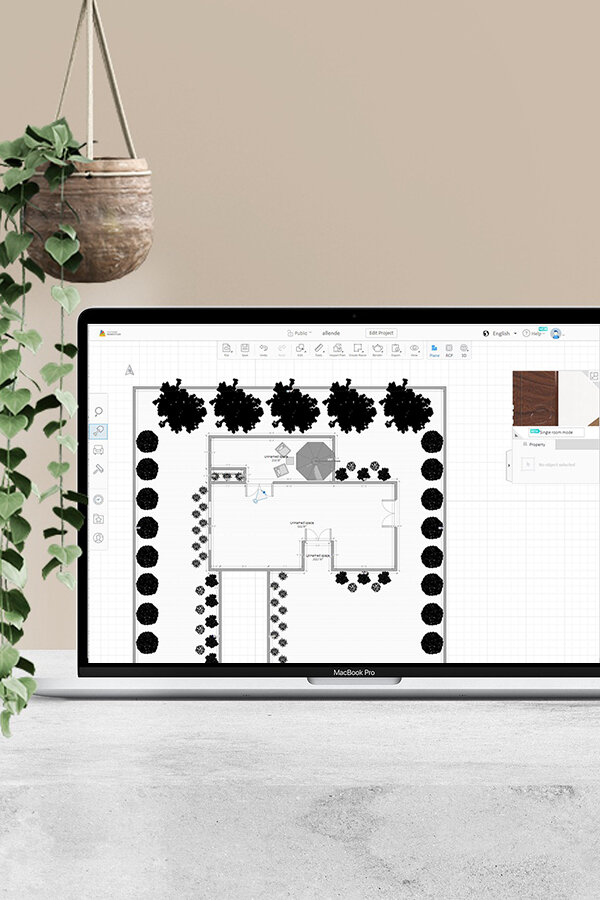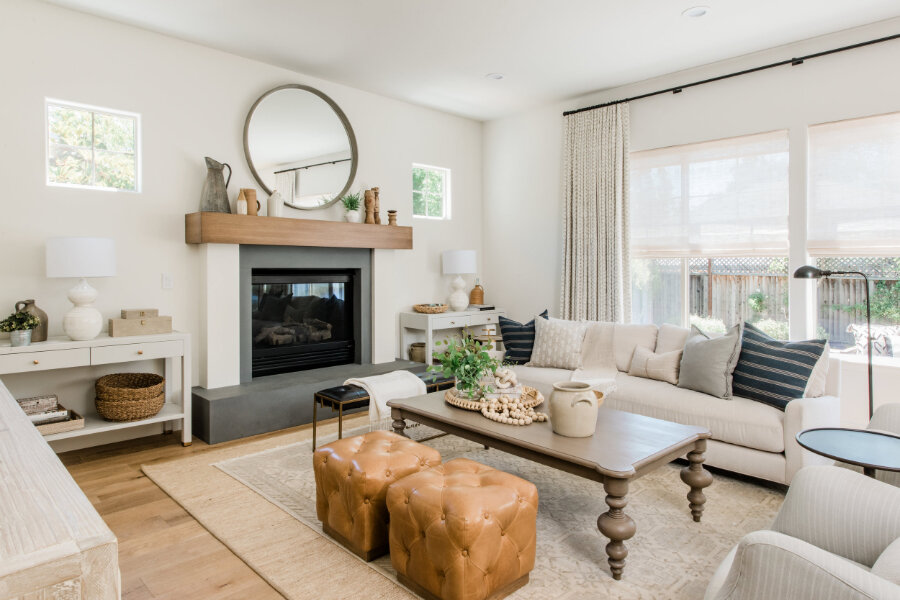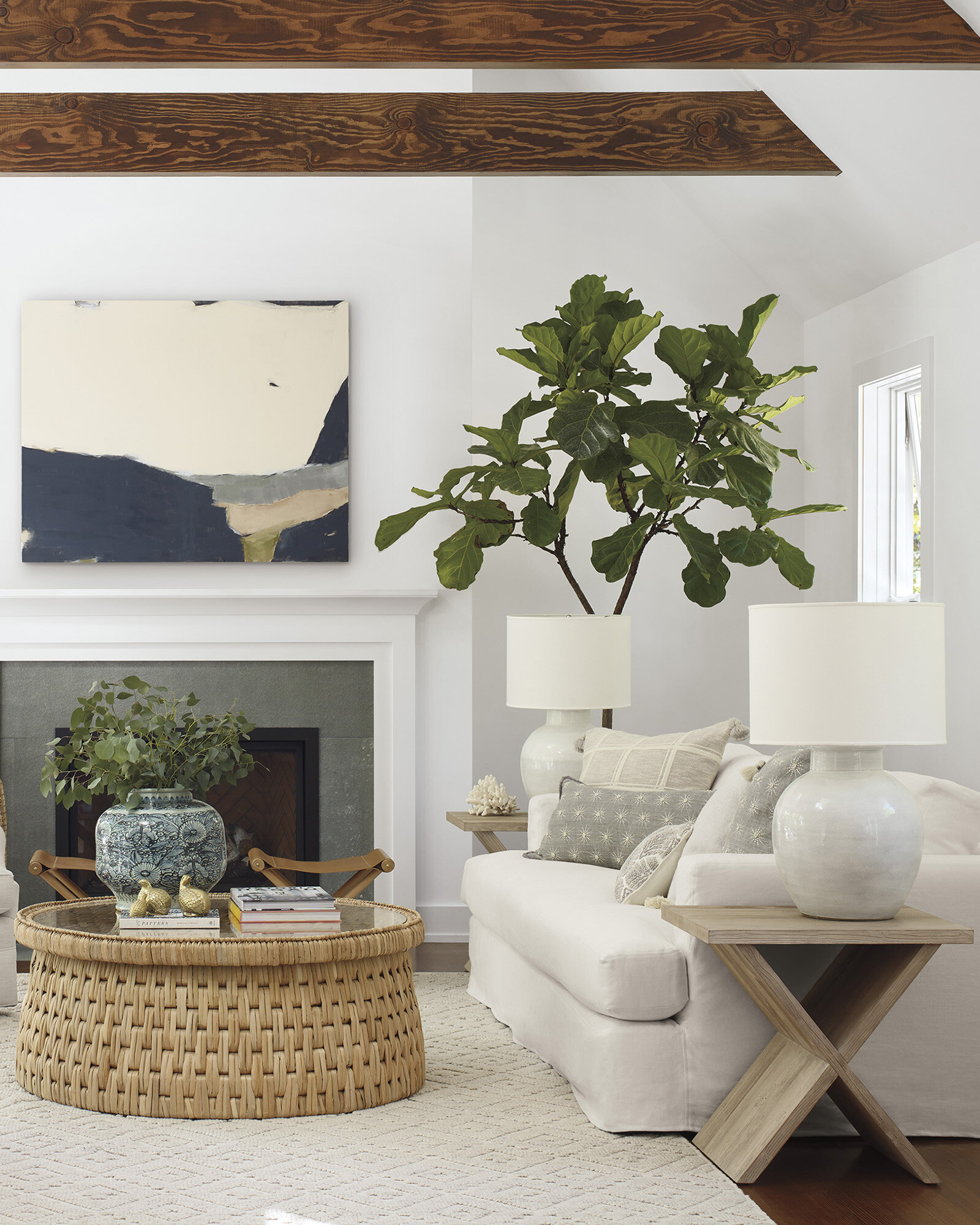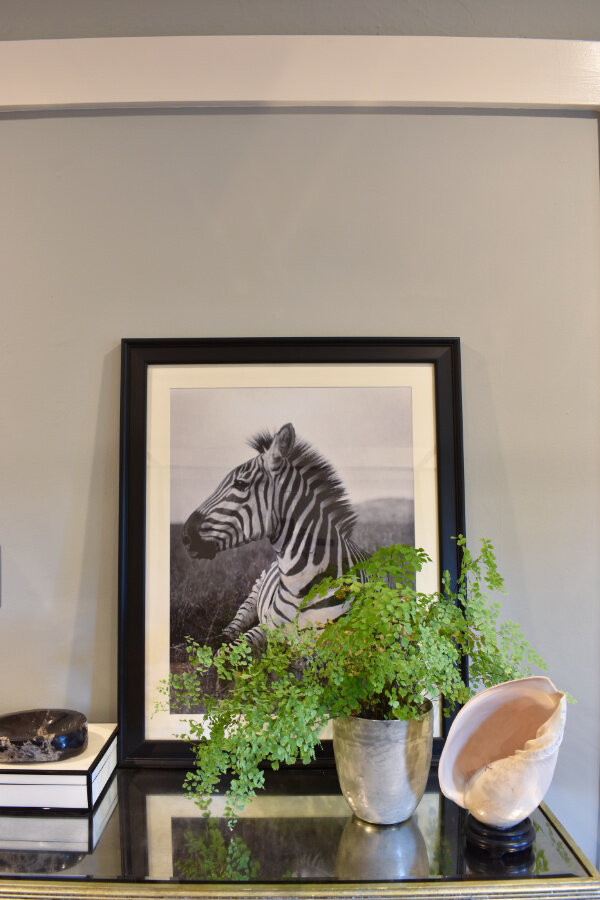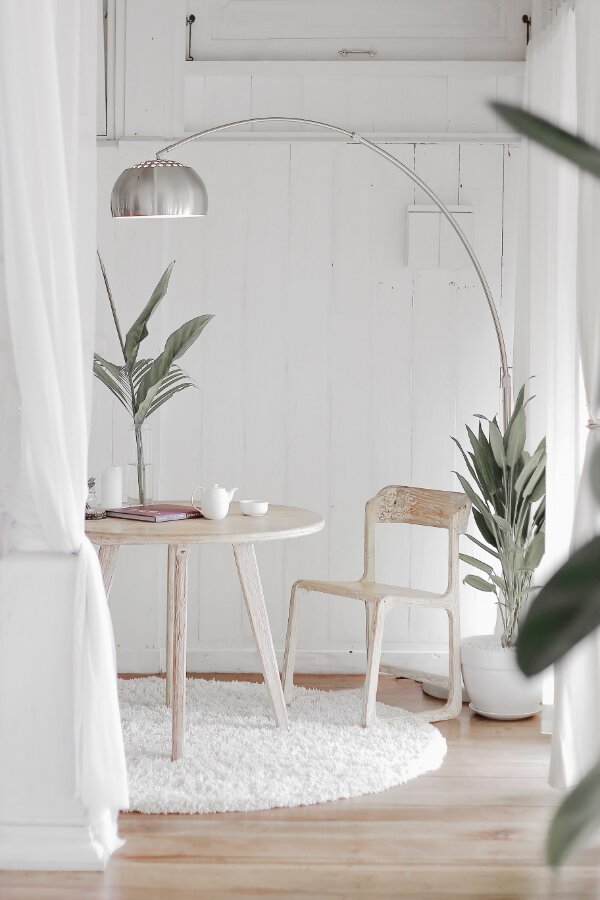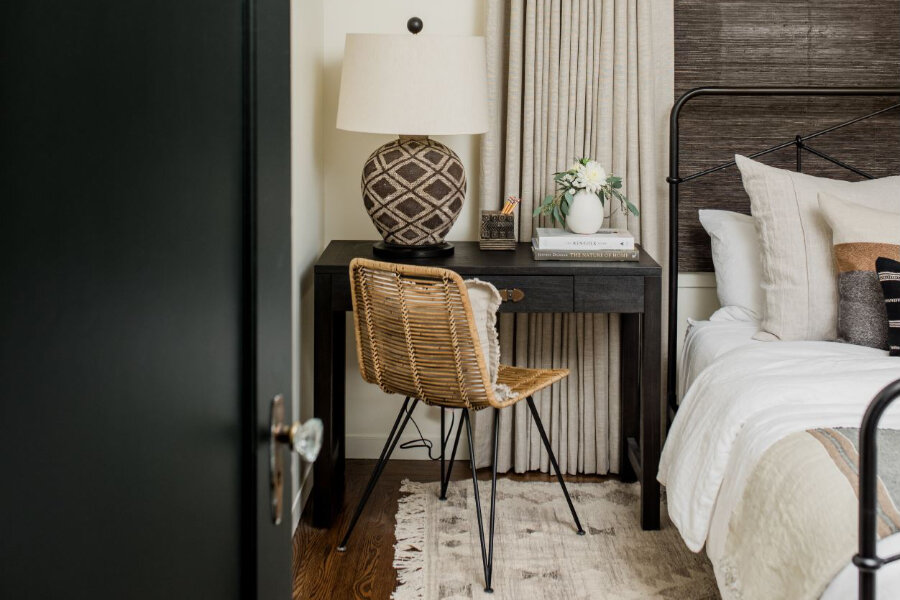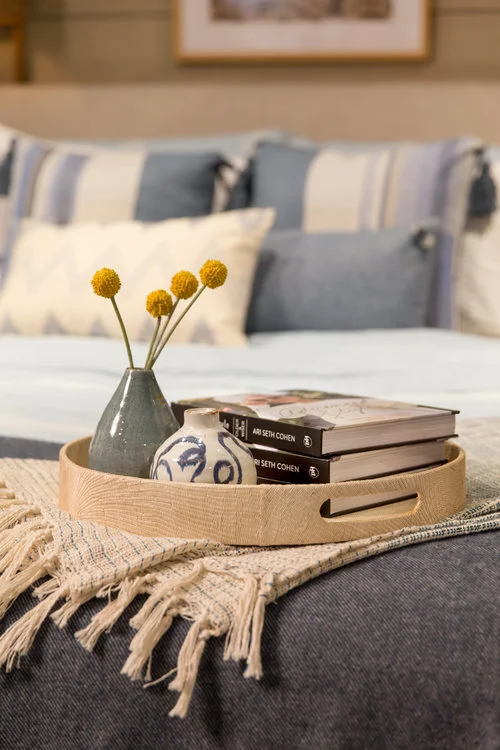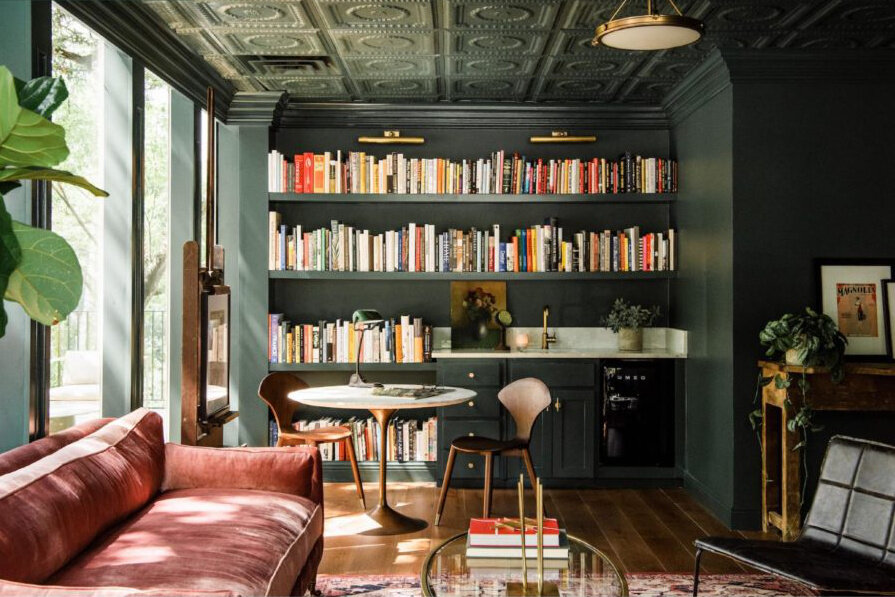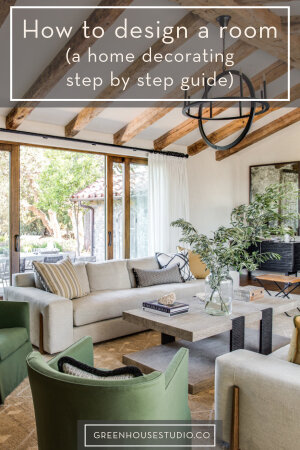How To Design A Room Like An Interior Designer [Step By Step]
Does overwhelm and paralysis set in at the thought of how to even start decorating your space? A living room, bedroom, let alone your entire home? It can be (almost) enough to make you dive back under the covers and just say “forget it - I’ll live with it the way it is!”
I feel you and I’m here to help with a methodical, step by step process that will break down how to design your room into doable parts.
Even though it’s my design process, the whole point is to make it adaptable so it serves YOU, your home, and your loved ones. If you follow these guidelines, you will create a room that is comfortable, cohesive, functional for you and yours, and reflects your own personal style.
It also doesn’t need to cost a fortune. I firmly believe that design constraints, whether budgetary or otherwise, often result in a more interesting project, and not the other way around.
With some clever ingenuity and a little extra legwork, you can save money and your end result will be a richer and more compelling reflection of your personal style. I really do believe this.
Ready? Let’s get to it!
This post contains affiliate links. Click here to read my full disclosure.
Interior design by Fletcher Rhodes, Sonoma CA. Photo: Thomas Kuoh
Ready? Here goes:
1. Make A Budget
2. Create A Mood board
3. Choose Your “Springboard" (Inspiration) Object
4. Make A Room Layout Plan
5. Choose Foundation Furniture
6. Pick Paint Colors
7. Scale Up
8. Don’t Over-Source Any Single Source
9. Inject Your Own Style And Individuality
Budget for your design project
A budget is a must if you want to keep your remodel/redesign under control. Decide up front what you can spend on your project. Prioritize your expenditures into “must haves,” “nice to haves,” and “not a priority.” Then pencil out approximately how much those items will cost. (More on this below.)
I start off by creating a spreadsheet where I input line items for each and every element of a project. Any fixed costs go in along with cost estimates that are replaced by hard numbers once I have them.
If you’re planning on sourcing any of the materials yourself, you’ll need to calculate square footages to estimate your materials costs.
Keep your spreadsheet updated so you know where you are budget and cash-flow wise.
Always add in an additional 10% for cost overruns. Some would say 20% is more appropriate. For a landscape overhaul, 10% should be sufficient. For a gut kitchen remodel in an old house - better to go with 20%.
The point is, you don’t want to be on such a tight shoe-string budget that when your contractor opens up a wall and you find dry rot or corroded plumbing, (surprise!) you don’t have a cushion.
Once you’ve set your budget, stick to it. Don’t be tempted to deviate from your budget mid-project with “Iit sure would be nice if (insert expensive upgrade). This is how budgets get blown. Unless you can really and truly afford it, don’t do it.
Here’s a full post on funding a home remodel or design project.
Pro Tip: Get 3 bids for any work that needs to be done. You’d be surprised at the variation in cost sometimes, but of course, this also needs to be closely compared to your assessment of the contractor’s quality of the work being done and project management skills.
If your contractor is only going to show up every 3 days or so to work while squeezing you in between other jobs, that’s going to delay your overall project timeline which may have cost or scheduling consequences elsewhere. Be sure to discuss project management expectations up front.
Read the full post on how to budget and fund your design or renovation project.
Kitchen design and source: deVOL Kitchens
Create a mood board
Before you spend any of your hard-earned money, the first step in the design process is to create a mood board, and then take a step back to see what the common threads are.
Having a plan ahead of time before you jump in is always smart. A mood board and subsequent plan of attack can help you avoid ending up with a piecemeal look and making costly mistakes.
Some questions to ponder:
What’s the purpose of the space you’re working on? Does it need to be practical for families and groups or is it more of a private space where you want to relax?
What do you want the overall feel or mood of the room to be about? Come up with a few descriptor words if that helps.
What styles, themes, colors are you drawn to? It’s worth noting that sometimes we think we know what we like, but then we find out otherwise. More on that shortly.
[Want more design inspo and helpful plant tips? Let's hang out on Instagram!]
Mood-project board image by The Home Index, Napa CA.
Mood Board, Round 1 - Pinterest
Click here for a complete post on easy ways to create your own mood board. My favorite quick and dirty way is to make a Pinterest board. Start pinning rooms, color schemes, furniture and accessories that you like.
If you don’t already have a definite style preference or even if you do, try to avoid having preconceived ideas. Just start pinning what appeals to you.
Tip: When pinning furniture, look for the individual shots with only the plain white background so you can see the furniture piece alone in conjunction with your other items without the “visual noise” of a staged room scene.
Usually the Pinterest “pin” icon comes up on company websites if what you want isn’t not already on Pinterest with a plain background
Once you have about 50 pins, take a step back and look at the board overall.
What styles/colors/forms/textures keep popping up in your selections?
What styles/colors/forms/textures are standing out to you in way that makes you feel good?
For example, are you finding you’re consistently drawn to soft, off-white walls or do you crave the vitality of stronger color?
Are your pins fitting what you originally thought you were after? If so, great! If not, don’t be afraid to consider these new ideas that are emerging from your pinning.
Do a gut check! Up above where I asked if you really know your style? At times I’ve discovered that just because I thought I knew what I wanted ahead of time, my pins don’t lie. I recently realized that I’m more of a soothing neutrals and contemporary design person than I used to be, and don’t laugh - Pinterest helped me figure this out!
After pinning many rooms that individually resonated with me, I looked back over them all collectively and realized “Hey - I seem to be drawn to a lot of light-neutral walls and clean-lined decor (with black windows) and lots of plants!” OK the plant part wasn’t exactly a shocker, but I had always thought I was more into color than I actually am.
Just as the camera doesn’t lie, neither do your pins when taken in as a whole. It’s possible that Pinterest can facilitate your style gut check for you.
Mood Board, Round 2 - refine your ideas
If you want, after doing a Pinterest mood board, (quick and easy requiring no graphics skills) you can drill down a bit further and create a board like I did below. It’s not absolutely necessary but it does provide a clearer picture of what you’re considering.
Again, here’s a link for easy mood board options.
You could also create a second Pinterest Mood Board with your refined ideas. Be sure to keep the first one though where you save all your original ideas and save source information from a pin representing anything screen shot and brought into Pinterest by you.
Be sure to pin items similar to what you already have. Several of the objects pinned in my board represent things I already own, and I want to see how they gel with the new ideas. So the key here is to place your items alongside new ideas and see how they fit together. Make sense?
Be sure to try out different options for each of your pieces - more than one sofa, pillows, rugs, coffee tables, lamps etc. See how they work together comparatively. Too much contrast or too little? Too much pattern? Too much blue? Practical enough to stand up to your family? Take a good hard look and evaluate.
Choose a "springboard" (inspiration) object
A “springboard object” is a term I came up with that evolved from my own design process. (I picture the vault springboard from gymnastics days.)
In addition to your unifying elements discussed above, you can select an object, artwork or decor piece that you use to help organize and propel the direction of your design project.
A painting or a rug for example, might inform the color scheme you work with. Or if you fall in love with a quirky thrift store find or antique, it could set the tone, style, or mood for your entire room if you want.
As always though, do a gut check. Just because you have a cool vintage painting with some purple in it doesn’t mean you need to dogmatically take up that color and incorporate it elsewhere if it doesn’t feel good or “right” to you to do so.
It also doesn’t have to be an object but could instead be a particular image that inspires you. For example, for my home office redesign, my “springboard” was images of the fabulous studio of Polish artist Margo Hupert. The wonderful imagery of her eclectic nature-inspired studio in greens, whites, and gray-browns had me swooning and became my main source of inspiration.
Create a scaled plan (ie - make sure your furniture fits)
This is a bit of a chicken or egg scenario and can be done either before or after the next section on picking foundation furniture. Which ever order, you MUST take measurements and make a simple drawing of your space and layout your proposed furniture and any other room elements before purchasing.
To get to the point where you’re motivated to make a plan, you probably have your eye on a few furniture pieces you’re excited about. To know if they realistically fit or not, you need to lay them out on paper (virtual or not) and see.
You can get out the graph paper, pencil, and eraser and lay out your scaled plan if you like, using 1 square = 1 foot and interior design furniture placement cut-outs (this can be a lot of fun and works fine - don’t get me wrong!).
Or you can use a free floor planner app to lay out your furniture and see how everything works in your space.
I have a post reviewing free floor planner apps including video demos. AutoCAD and SketchUP are my go-to software for 2D and 3D respectively, but roomstyler.com was the first simple, user-friendly free option I found. To get started:
In Roomstyler, navigate to “Tools - 3D Roomstyler” and you can easily draw your room in plan view (overhead view looking straight down) and then automatically generate a 3D image. Plan view will let you see how well your furniture fits.
- Start drawing your walls to their correct dimensions. Then you can add in scaled furniture or you can just draw out your furniture to the correct dimensions instead.
After making a plan view, another important step is to take some blue painter’s tape (or I lay out a few intersecting tape measures in a pinch) on the floor (or wall) and see how different objects fit irl. Again, laying it out on paper is important, but so is a second check of how it might feel in your actual space.
Research interior design dimension standards on how much space is needed between dining room chairs and walls for comfortable passage or a sofa and coffee table for example.
After all, laying out your furniture possibilities is important, but if you unknowingly only leave 12” to walk between your virtual sofa and a wall, you’ll find it’s a tight squeeze IRL!
Take this time to consider outlet locations and wall elements like mounting a TV, wall sconces, and ceiling lights with associated wiring needs.
Seeing your ideas laid out to scale provides an important reality check to the ideas and inspiration of the mood board. The last thing you want is spend a lot of money on something that doesn’t fit well in your space, no matter how much you like it.
Start with foundation furniture
Again, which comes first, picking some furniture possibilities and measuring them in our space, or measuring our space to determine rough sizes for furniture. Realistically, I know which I would do - I’d find things I love first and then determine if they fit, and if not, find something similar that does.
Either way, we can now move onto the furnishing basics. If we’re talking about a living room, this might be a sofa and coffee table for starters, or a sofa and a couple armchairs.
To get going here, I’d recommend selecting a neutral couch and a simple cocktail table, or the neutral couch and a couple of leather armchairs - whether midcentury, club chairs, or whatever, so long as they’re streamlined and classic overall. The point is to choose foundation pieces that are versatile and can work with a variety of styles, color schemes, and accessories.
7 years from now, you may be over modern farmhouse, or at least over it in the way you love to style it now.
Before you get out the torches and pitchforks for that comment though, let me just say I’m speaking from personal experience here. It’s amazing how much my tastes have evolved over the last 10 years. It’s not that I now dislike what I loved back then, it’s just that it’s not what I would choose to go with now.
That’s all. Just sayin’
So I would encourage you to consider giving yourself the gift of future flexibility. If you have simple foundation pieces that can go with a variety of decor styles, these big ticket items can continue to work for you if your style changes over time. This allows you to go nuts and have lots of fun expressing your style preferences du jour with the smaller things like occasional tables, lamps, accessories etc, without breaking the bank.
On the other hand….there’s the very real possibility that your kids and menagerie will trash whatever sofa or soft furnishings you purchase regardless.
I can certainly relate. After having twin toddler boys and a couple cats contained in a yard-less condo, by the time I finally jettisoned that olive-colored wannabe Pottery Barn couch back in the day, the thought of what running a black light over it would reveal was truly horrifying.
So at risk of completely contradicting myself above, this could also be license to throw caution to the wind and go for that tangerine sofa. It might not last much beyond the babyhood-thru-elementary years anyway.
Pro tip: With this in mind, don’t blow your budget on super expensive soft-furnishings or think of them as “investment pieces.” I’ve learned to buy relatively inexpensive sofas and upholstered furniture, and I’ve been more than happy with that strategy. Regardless, they still cost a lot, because they’re sofas and chairs, right?
First of all, they’re rarely statement pieces anyway. (Unless you do go for that tangerine sofa.) A neutral sofa often doesn’t look or feel all that different from a less expensive model, especially considering the sometimes jaw-dropping price differentials. That being said though, frame construction, fabric quality, down vrs synthetic cushions etc certainly makes a difference.
FYI just in case you entertain fantasies of reupholstering that investment sofa when needed, or like me, you found a “fabulous bargain” mid-century Asian style sofa at Goodwill and drug it home thinking “I’m gonna reupholster this sucker and surpass it’s original glory!” Let me share some truth - reupholstery almost always costs more than buying new.
Yes, sadly that mid-century sofa eventually made it’s way to the curb with a big '“FREE” sign on it.
So between kids, pets, and your clumsy uncle clutching a big glass of red, you don’t want to completely freak out when (not if) your couch suffers damage.
These mental images are what pushed me to go with my Bomar sofa from Joss and Main versus the pricey one that was on sale for 4.5 times the price at a local boutique in town. (Those down cushions were dreamy though!)
I’m very happy I did. I don’t want to be the mom or hostess who breaks out in a sweat every time food/drink/small and-or furry creatures get near my stuff.
I also believe that an upholstery/carpet spot cleaning vacuum with a wet-vac brush can be an excellent investment and sanity saver. I might not have survived toddler twins without mine.
Potential foundation furniture options:
1) Leather is great for kids - if they or the cats throw up on it, you can simply wipe it down, unlike upholstery. Do be sure it’s a durable finish though, specifically, aniline dyed leather which combines a protective treatment with a durable part of animal hide.
In contrast is top-grain leather. Ever sat on one of those lovely, supple sofas or chairs that feel more like soft kid gloves or an expensive handbag than a piece of furniture? Most likely it’s top grain leather. The top layer is removed by sanding to get rid of surface imperfections. Because of that, the leather is very soft but isn’t durable and will stain easily. This is the kind of leather most handbags, wallets, and other expensive leather goods are made from as well.
Run your fingernail over leather furniture you’re considering. If it leaves a mark, run away. It won’t hold up to whatever your kids, pets, and red-wine slinging family and friends dish out.
2) Spill and stain resistant fabrics like Crypton or Sunbrella. They are sometimes indoor/outdoor as well, and they’ve come a long way in terms of how they feel, look, and perform since first hitting the home decor scene in the 90s.
3) Slipcovers. Although I’ve never tried them, slipcovers also work so long as they come out of the wash in the same shape and size as they went in and don’t require 3 hours of ironing. (Not gonna happen.) Many who prefer light colored upholstered furniture swear by them.
4) Another stain defense strategy I deployed back in the day on my old Pottery Barn wannabe sofa was to put a large piece of fabric across the main seating area for a casual, boho vibe.
Ideas: a throw blanket, tailored bedspread, (I used a basic white cotton duck IKEA bedspread), a simple cotton tab-less drapery panel or 60” wide (upholstery width) fabric can all work.
- Drapery tabs can be cut off fabric and fabric hemmed without sewing using Stitch Witchery fabric adhesive) .
- You can even tuck the cloth behind any loose-back cushions for a tidy look and that helps keep it in place.
When liquid lands, hopefully the covered seat part bears the brunt of it and can be quickly thrown in the wash.
This slipcovered sofa from Serena & Lily comes in dozens of stain resistant fabrics.
Picking a paint palette
So after you’ve settled on the overall mood and style and thought about colors based on your mood board, and chosen any inspiration objects, it’s time for wall paint.
I’m the first to admit that choosing paint can drive me and everyone around me batty. (Read about my latest paint selection side-show here.) I really recommend reading the post and the other posts linked from it.
Paint is important and an expensive process and needs to be chosen carefully to avoid costly mistakes. Here’s the abbreviated version:
Going back to that Pinterest board, decide on what generally works for you; neutral or color.
If it’s neutral shades you’re drawn to, what kind? White? Gray? Taupe? Greige? (greige is a warm gray-beige combo) Then, consider the undertones: do you want a cool white/gray/taupe vrs warm white/gray/taupe, etc.
Photo: Shutterstock
Important note: neutral and color aren’t mutually exclusive. My living room is painted Benjamin Moore’s Richmond Gray, which is much more of a neutral green than a gray. Same in my bedroom - it’s painted Benjamin Moore’s Sea Haze, which is a neutral blue.
Perhaps you want a mostly pale neutral with a subtle undertone of a color such as a white with a touch of green or a gray with just a hint of lavender. The same principals apply here as with stronger color.
You don’t have to choose between neutral and color if you don’t want to!
I’m not going to lie to you though, this can get tricky (and expensive) fast. What appears on a color chip to be the most subtle warm gray can be not so subtle lavender gray once it’s up all over the walls, especially where the corners intersect or where light hits it directly causing underlying tones to “glow” (not necessarily in a a good way).
My bedroom is painted in Benjamin Moore’s Sea Haze, which is a neutral blue on the walls but on the chip looks gray. Photo: Greenhouse Studio
Some tips to guide your paint selection process
Do some research on paint color palettes - once again, Pinterest is your friend. Lots of blog posts with titles like “10 best whites for interiors” for example, recommending paint schemes. Then go down the paint store and choose some chips.
Bring them home and stare hard at them during different times of the day and determine which ones might be contenders. Then go back to paint store and buy samples of ones you like plus some white primer.
I always just paint directly on the wall, but you could also go to a craft store and buy some poster board. Either way, paint the white primer so it creates a border around your sample and then paint large samples and observe in different light at different times of the day.
Pro tip: Paint color will look more color-saturated on an entire wall than on the chip. Much more saturated. In other words, if you desire a hint of lavender to warm up your mostly gray paint choice, your paint chip that looks like a nice subtle French lavender gray might look a lot more like a purple Barney nightmare when covering an entire wall. ALWAYS paint a large sized sample including intersecting corners where color undertones reflect on each other. Trust me.
Pro tip: The color of your existing walls can really, really affect how the potential new color looks. (Really!!)
I said this above but it’s so important I’m saying it again: After my last round of painting, my solution is to put up primer so I can paint samples on a white wall. At the very least, go with large white poster board and leave a border around the sample.
Pro tip: Interior designer or paint-expert vetted paint palettes exist for a reason! The shades they recommend generally work for most spaces, or at the very least, stand a greater chance of working than a random shade that looks pretty on a chip and then produces a hideous undertone once you get it on the walls.
Honestly, choosing paint can be so fraught with potential disaster, that perhaps the best piece of advice I can give you is to pick a designer recommended color (look for cross-references between recommendations) and thoroughly test it rather than “going rogue” with one of the bazillion other options out there. I hate to sound so conventional about this, but it really can be just that difficult choose a color you not only can live with, but actually love.
Again, I recommend reading the full post on paint color selection with the expert color recommendation links, and then doing additional research and sample testing on your own.
Scale up
I debated including this because I don’t want this taken as a blanket recommendation. However, in general, choose larger and fewer over smaller and numerous.
Too small and numerous = too fussy oftentimes. (Remember your elderly neighbor’s collection of ceramic miniatures?) More often, “too small” results in not making much of an impact and may create a feeling of clutter.
I would also say, “scaling up” applies more to accessory type objects rather than say, a sofa. The last thing you want to do is decide carte blanche to “go big or go home” and purchase a ginormous reclining sectional complete with drink holders only to have to shoehorn it into your space. If this is your temptation, please re-read the Scaled Plan section above.
In the garden, it’s better to have 2 or 3 statement containers (depending if you’re going for symmetry vs. asymmetry) with large plants or small trees rather than 6 small containers huddled together.
This may seem more expensive initially, but often I find that I end up spending more on numerous small things over time than on a thoughtful, larger up-front investment.
Instead of many small objects, the bedside table has a large lamp and a few carefully chosen accessories. Interior Design - Fletcher Rhodes, Sonoma CA. Photo - Rebecca Gosselin.
Just like clothes, it’s often better and ultimately more economical (and environmental) to buy a few quality pieces rather than numerous mediocre items that are hardly worn and get quickly donated/discarded. (Guilty as charged on that one, but mucho better than I used to be at re-calibrating my notion of what is or is not a “deal!”)
Speaking of containers though, if you do have a group of smaller objects like a collection, decorative trays and platters can be used to corral and make visual sense of them. Example - decorative trays that house a collection of succulents in small pots.
This can also apply to wall art. If you have numerous smaller framed pictures, group them into a gallery. When done correctly, the overall effect is that it looks like one large cohesive installation. (This concept reminds me of big schools of silvery sardines. They move in a giant group together because it fools predators into thinking they’re one big fish, but I digress..)
For tips on how to hang a gallery, refer to your interior design dimension standards mentioned in the “Create A Plan” section above and check out this gallery wall post by Pottery Barn.
Avoid over-usuing any single source or style
This is a pretty simple concept. What I’m getting at here is you don’t want your house to look like a Pottery Barn catalog for example. Using some items from Pottery Barn is great, but if the entire space is overly sourced from any one style or brand, it can create a flat, homogeneous look.
A good example of not overusing a single source or style is Magnolia Home - mecca for modern farmhouse, right? However, if you look closely at many Magnolia style shots, they often incorporate items that would be classified as something other than modern farmhouse.
Magnolia library & conference room renovation. Interior Design: Joanna Gains, Source: Magnolia
Note how Joanna Gaines has skillfully incorporated mid-century-style into the Magnolia Home corporate library and conference room through the mid-century classic Tulip table and Cherner side chairs. (LOVE Cherner chairs! Check out how to get your own Cherner side chairs for less.)
Mix it up: Back to modern farmhouse - if that’s your style through and though, that’s great, but within that, there are still style subsets you may want to play with and bring together.
If you love the shabby chic, chippy furniture pieces that look rescued from the back of a barn, create a more layered look by incorporating more streamlined elements of French, Scandinavian, or coastal farmhouse style. I would still encourage you to consider bringing in a few pieces from a different style or period altogether that compliments your design for a richer look.
So how in the heck do I “mix it up” you say? Go back to your Pinterest mood boards and look for unifying features like color, texture, and form like we talked about in the beginning. Then find pieces from a complimentary yet different style which at first pass may seem too different, but actually add harmony and depth to your overall design.
For example, say you have a mid-century room but you found this industrial side table you love with a black wrought-iron base. Use the black color in the base to tie the two styles together by incorporating midcentury pieces that have a bit of black in them as well. You’ve instantly created more depth and interest in the look of your space over a “one liner” type of design scheme.
Your rooms will love you for it, and you will love them back.
Pro-tip: Speaking of black, a common interior designer truism is that every room needs a touch of black. I know there are spaces that look amazing without any black, but 85% of the time, I agree. I think it adds drama while providing a grounding effect.
I would modify though by saying a brush stroke of charcoal, deep navy, or blackish-green will do just as well. Hey, if you don’t believe me, just look again at Joanna’s dramatic, moody conference room all done in that deep peacock blue-green.
Inject your own personal style and individuality
Now we get to the really fun part! You’ve done the heavy lifting of choosing foundation furniture and paint. With the smaller and usually less expensive pieces like accessories, accent tables, lamps, pillows, plants etc, you have all the freedom to express yourself about what ever makes your heart sing or speaks to your soul. This is your reward for suffering through the trials of paint selection!
Quirky, thrifted, found, natural, metallic, rustic, old, new.
This is your chance to experiment! Do it without fear, have fun with it, and I guarantee you’ll learn something in the process.
Try mixing old with new, high end with low end, rustic with streamlined, large with small, and just see what happens.
Read here for tips on how to decorate with natural and found materials and objects. See what interesting and eye-catching combinations and arrangements you come up with. Best of all, they will be a unique reflection of you and your personal style.
House of Harvest antiques does a brilliant job of incorporating eclectic objects together for a one-of-a-kind-curated look. Source : House of Harvest
So that’s my “manifesto” on how to design a space. I hope you got some helpful tips that you’ll be encouraged to try out in your own home.
It’s a lot of work to design a space but it’s also a lot of fun, and the end result is worth it. There’s nothing better than coming home to a place you love.
[Want more design inspo and helpful plant tips? Let's hang out on Instagram!]
Be sure to sign up below so we can stay in touch!
Enjoy the post? Pin it for later!

